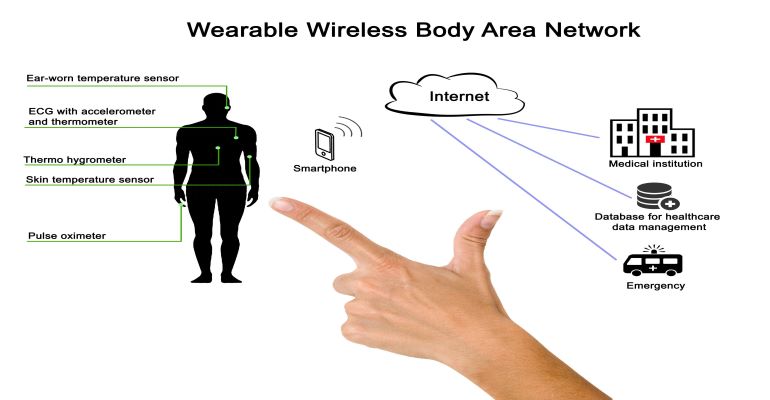Medical Sensors Move to RF Technology
Startup healthcare company has developed RFIC that will form basis of sensor monitoring blood pressure, glucose.

Most wearable sensors use off-the-shelf optical sensors. A three-year-old medical technology company, Movano Inc., has chosen a different path by using radiofrequency technology to develop a patented system-on-chip (SoC), that will provide a platform for a range of sensors to be incorporated into future medical wearables.
Movano has started beta testing a prototype sensor using the RFIC, that will be able to perform blood and glucose sensing. The company hopes to eventually migrate this technology to a range of sensors monitoring other vitals, such as heart rate and respiratory rate.
The company was founded in 2018 by Michael Leabman, currently the company’s Chief Technical Officer and Co-Director. Leabman hopes to leverage his expertise in RF for wireless and avionics applications to wearable sensors for medical applications.
Leveraging RF technology from an avionics platform to a SoC for a tiny medical device is not easy, Leabman said during an interview with Design News. “It was a really a challenge trying to shrink radar technology that was previously stored in racks of equipment to a very small size. “Testing was particularly difficult with microwave chips, as you are packing in a couple of tiny antennas.”
But Leabman noted that RF technology provides potentially more sensing benefits than optical techniques. “With optical sensors, the signals are bouncing around and you are getting signal reflections off tissue and bone. Also, RF signals do not get absorbed by skin pigmentation.”
Leabman added that the SoC design also achieves good dielectric isolation as millimeter-wave signals do not present the issues lower frequency signals have.
Development of the RFIC is part of Movano’s strategy to establish a foothold in medical wearables. According to John Mastrototaro, CEO of Movano, the company is developing a sensor technology platform that will eventually incorporate the RF SoC. The company will beta test a full range of low-cost sensors to monitor heart rate, respiratory rate, as well as blood pressure and glucose.
Movano is targeting the consumer market. “We want to target the consumer from the get-go,” said Mastrototaro, adding that the company expects the sensors to be part of a digital health strategy to help consumers proactively monitor their own health.”
As part of the digital health strategy, Movano will also develop a data platform to retrieve and store data from the sensors, and is considering partnering with a third party to provide analytics. A wireless app to work with wearable medical devices is also under development.
Spencer Chin is a Senior Editor for Design News covering the electronics beat. He has many years of experience covering developments in components, semiconductors, subsystems, power, and other facets of electronics from both a business/supply-chain and technology perspective. He can be reached at [email protected].
About the Author(s)
You May Also Like





